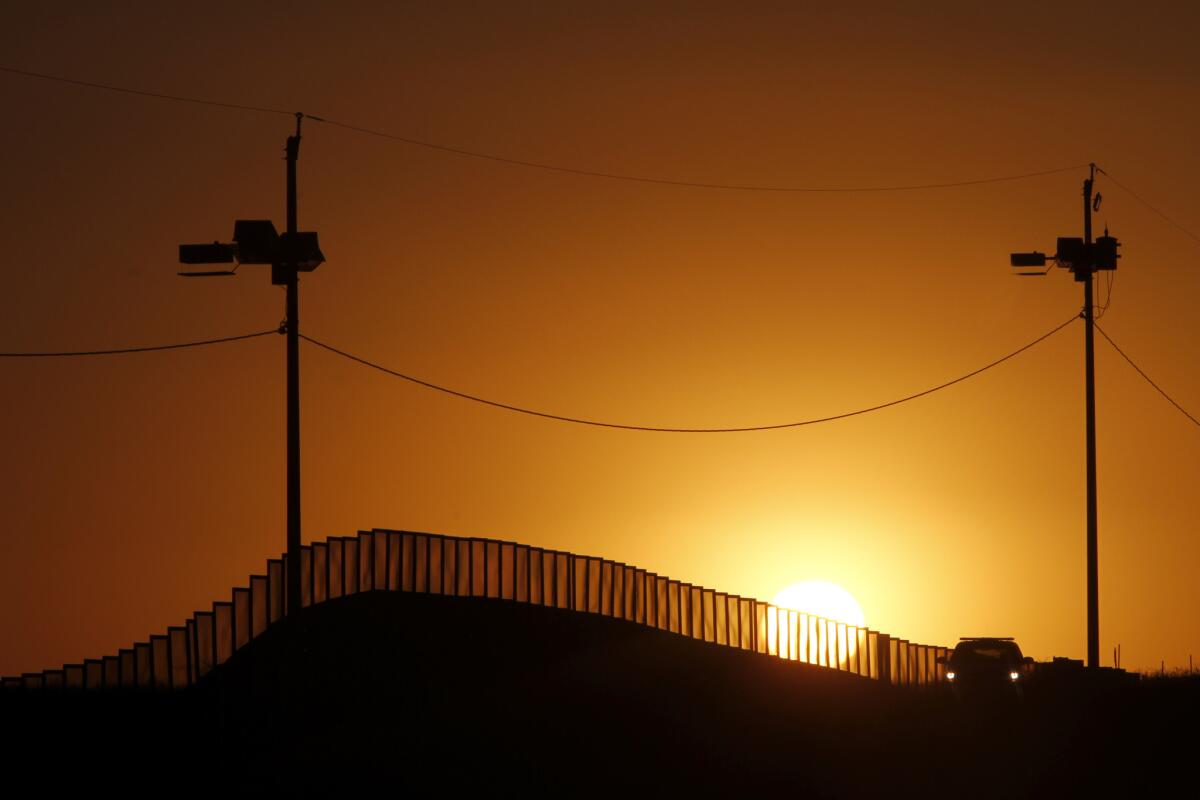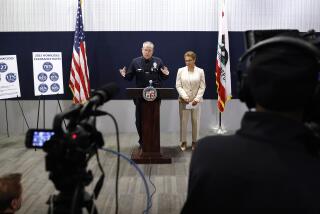ACLU sues to obtain Border Patrol records on Arizona checkpoints

TUCSON, Ariz. -- A civil rights watchdog organization that has accused the Border Patrol of excessive use of force and racial profiling filed a lawsuit Monday, seeking public records about the federal agency’s roving patrols and checkpoints in southern Arizona and contending that requests for that information have been repeatedly ignored.
The American Civil Liberties Union of Arizona said Department of Homeland Security officials ignored two requests for public information about the Border Patrol’s interior enforcement operations in the Tucson and Yuma sectors.
“It’s outrageous that the leaders of the nation’s largest law enforcement agency think that they can simply ignore lawful requests for public information,” said James Lyall, an ACLU attorney in Tucson. “For Border Patrol to be held accountable they have to be transparent. But the agency consistently refuses to share basic information with the American people while rights violations are rampant.”
U.S. Customs and Border Protection officials wouldn’t comment on the lawsuit, stating that agency officials do not comment on pending litigation.
The lawsuit is just the latest move by a contingent of civil rights organizations and a group of residents who live along the southern Arizona border who said they are tired of what they call the increased “militarization” of their community.
In Arivaca, some residents critical of the checkpoint in their region have formed a humanitarian aid group called People Helping People in the Border Zone. They said they live with delays, harassment and even abuse by Border Patrol at a checkpoint in Amado, a town of about 300 people, about 25 miles north of the U.S.-Mexico border.
But not everybody feels that way.
Ted Voss, who said he’s lived in the area for 25 years and passes through that checkpoint every day going to work, said the road used to be more dangerous before the checkpoint was established.
“There was a lot of drugs and people being smuggled in both directions and those drivers had no regard for anything other than their own business,” Voss wrote in an email. “Since the point has become more established, the road is safer.”
In February, the Arivaca organization started to monitor Border Patrol actions at the federal immigration checkpoint.
Border Patrol officials, who have described the checkpoint as temporary even though it’s been in place for seven years, said they had no plans to remove it.
“In the Tucson sector, checkpoints remain a critical piece of infrastructure and a highly effective tool in our enforcement efforts to secure our nation’s borders,” U.S. Customs and Border Protection official have said about the checkpoint.
Although federal officials have released apprehension and seizure statistics for all checkpoints in Arizona’s Tucson sector, they have refused to provide numbers on each one separately.
In January, two separate requests were filed by Lyall and two professors at the University of Arizona in Tucson. In the lawsuit, the ACLU calls the checkpoints and roving patrols as “unlawful” and is seeking information on the agency’s policies, data and complaints about interior enforcement.
In February, the Los Angeles Times reported on U.S. Customs and Border Protection’s use of deadly force while patrolling the nation’s border with Mexico.
The article was based on an independent review of U.S. Border Patrol shootings. Conducted by a group of law enforcement experts, the review criticized agents for “lack of diligence” in their investigations, suggesting agents intentionally provoked confrontations at times by stepping in the path of cars, apparently to justify shootings.
More to Read
Start your day right
Sign up for Essential California for news, features and recommendations from the L.A. Times and beyond in your inbox six days a week.
You may occasionally receive promotional content from the Los Angeles Times.







